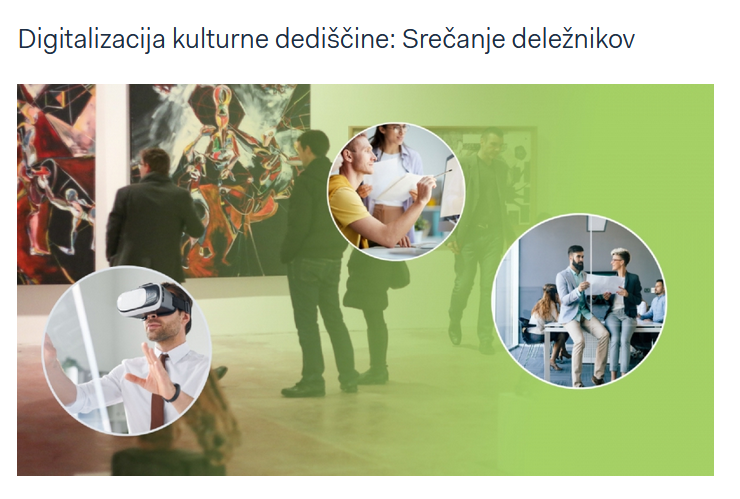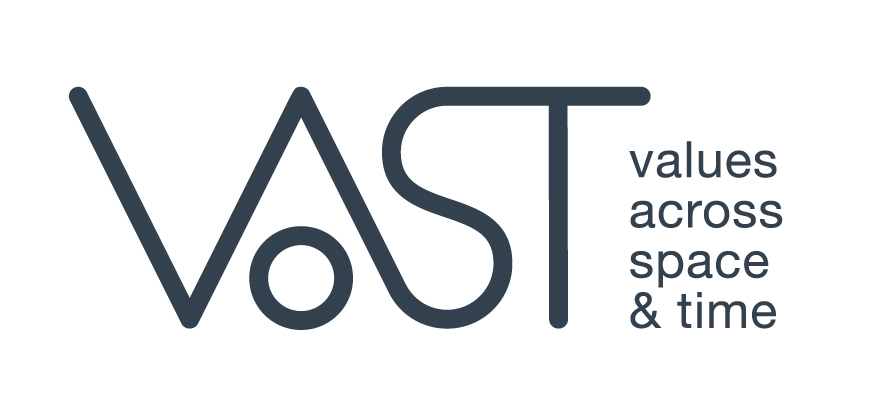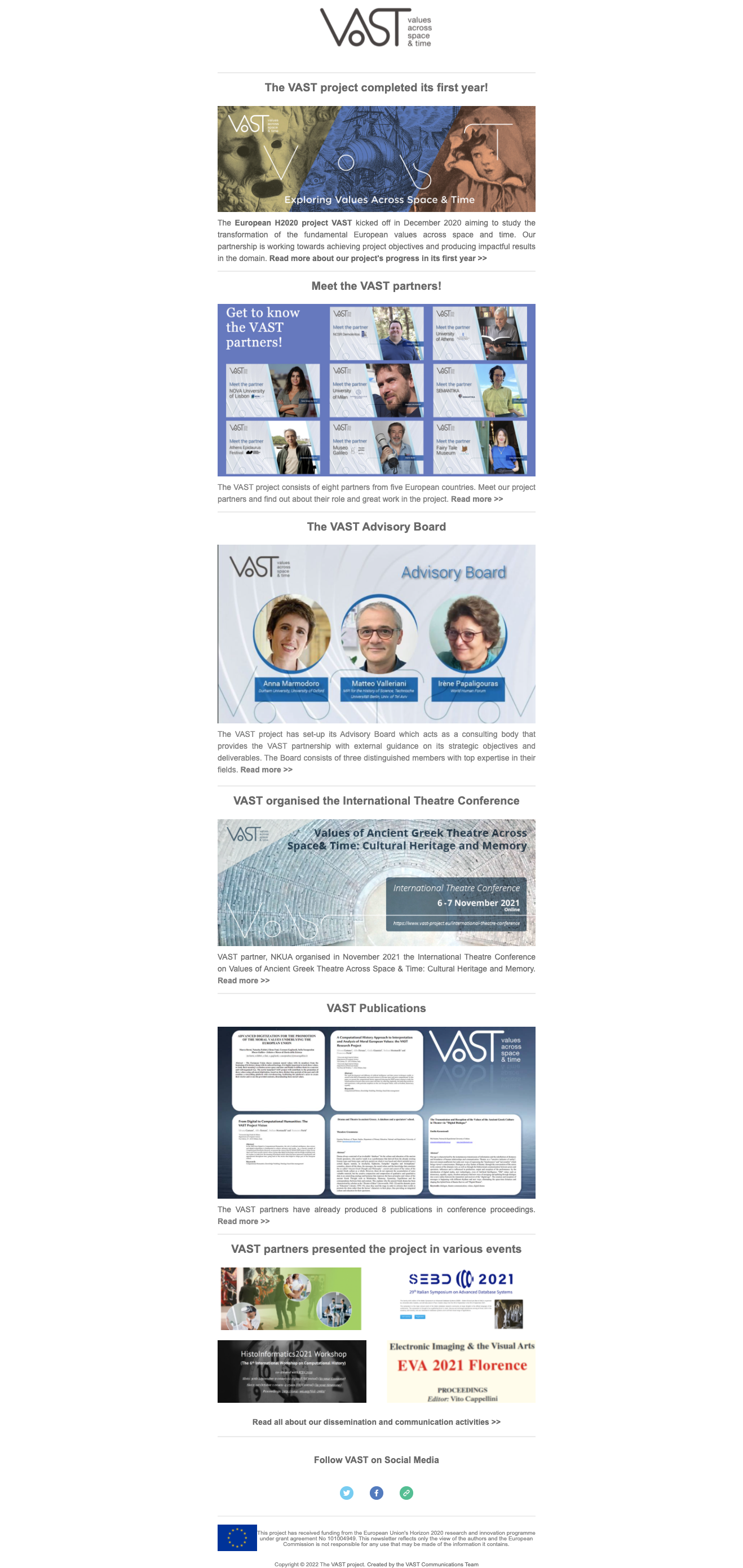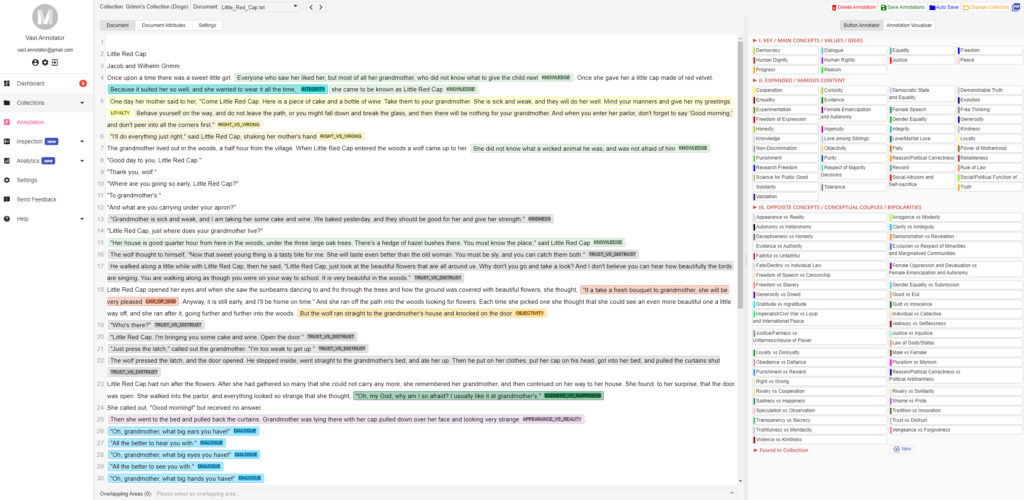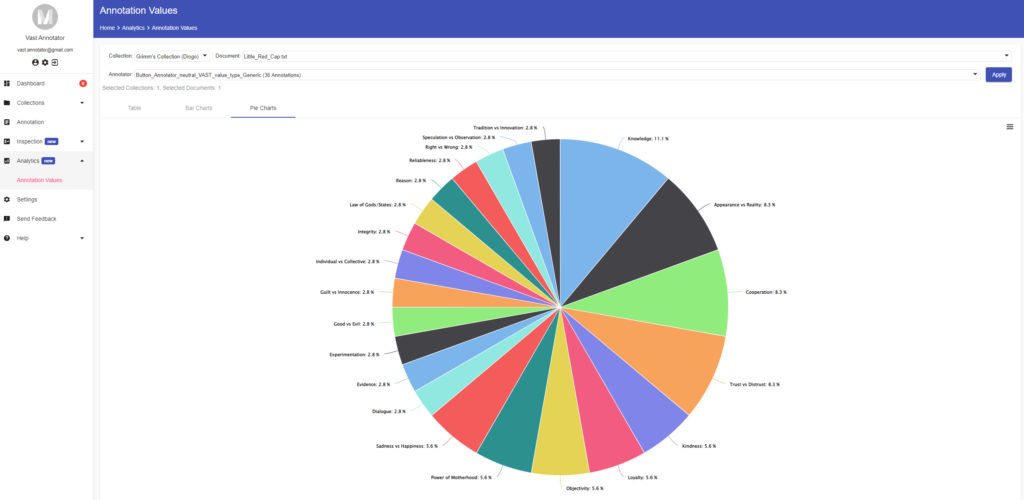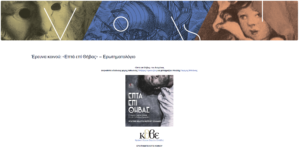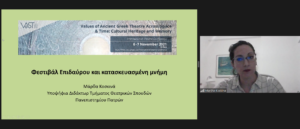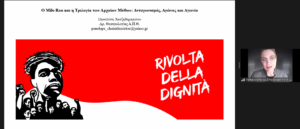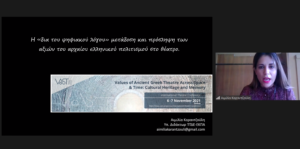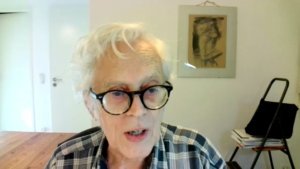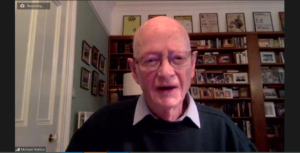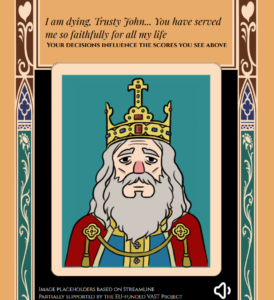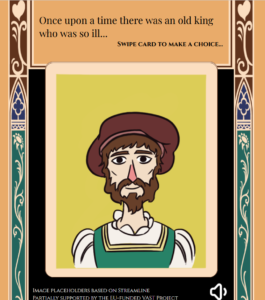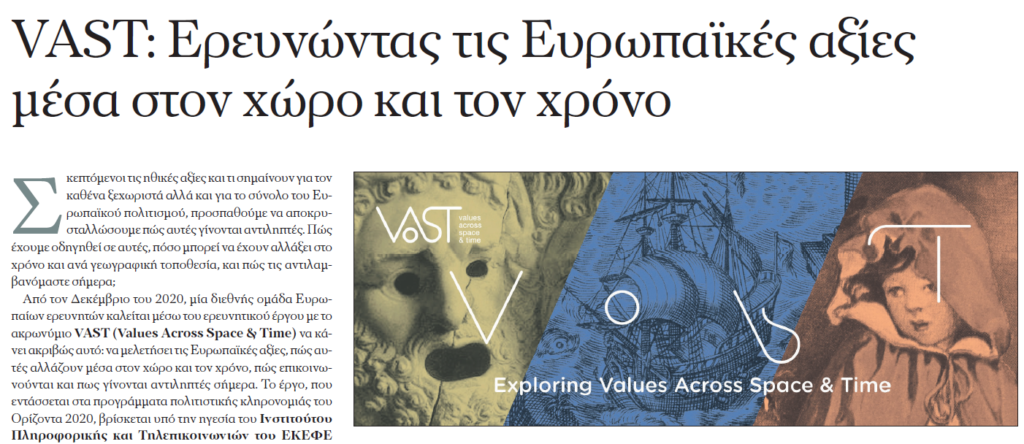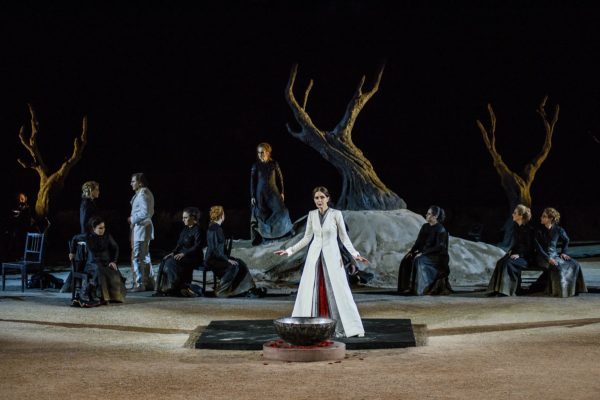News & Events
VAST has completed its 1st year!
VAST envisions bringing values to the forefront in the field of advanced digitisation. During a course of three years, VAST partners will address how values have been transformed across space and time, and how values are communicated and perceived by audiences. At the core of the VAST project lies the continuous digitisation of tangible and intangible content, including the experiences and stories of artists and professionals involved in the curation and communication of values to modern audiences, as well as the experiences of the audiences.
VAST project kicked off in December 2020 and has already completed its first year! We now look back on the project’s main achievements.
Studying Values Across Space and Time
VAST looks at the past and the present of values to study how they have been transformed through time. Following VAST methodology, during the first year of the project, the consortium focused on the study of the past of values. Specifically,
- 44 digital artefacts have been annotated. Applying the scientific methodology designed for narrative analysis, VAST scholars have annotated: 20 ancient Greek drama plays, 15 17th century Scientific Revolution document excerpts, and 9 fairy tales written by the Grimm Brothers.
- Through the annotation process, the Registry of Values has been created based on the core European values, such as: freedom, democracy, equality, tolerance, dialogue, human dignity and the rule of law. The Registry of Values currently includes 94 values.
The VAST Annotation tool
The annotation of the selected artefacts has been conducted through the VAST Semantic Annotation Platform (SAP). Based on the CLARIN-EL Web-based Annotation Tool, the VAST SAP meets the usability requirements of the scholars as defined during the first project year. It provides many collaborative features, including asset sharing and real-time collaborative analysis of annotation assets. The VAST SAP is one of the first exploitable assets of VAST and is already used in other research projects, such as the DebateLab.
Continuous digitisation of intangible content
As a first step towards the understanding how people perceive in the present the past of values, two audience research campaigns have been implemented in the context of the pilot that focuses on ancient drama literature. The campaigns have been implemented in greek as online questionnaire surveys and study the people’s perception of values before and after watching a recorded performance of the ancient Greek drama “Seven Against Thebes” by Aeschylus. More than 100 research participants were involved in the studies.
In addition to the previous activities, other achievements of the first year include:
- An initial list of user requirements for all the VAST digital tools was defined along with appropriate procedures for the evaluation of the tools.
- The semantic foundation of VAST has been specified, based on existing standards, such as CIDOC CRM3. VAST ontology integrates under an integrating conceptual schema the requirements related to “past of values” knowledge representation, including the annotation of artefacts with values, and the requirements related to the “present of values”, including the representation of contexts, multiple interpretations, and semantic relations among artefacts. The first prototype of VAST’s ontology has already been implemented and has been populated with the results of the annotation.
- An initial prototype of an exploration tool has been developed, providing functionalities related to browsing ontological concepts and relations, their annotation with additional metadata, and the addition of contextualised relations.
- The planning and preparation of the pilot activities of the second year.
Communicating the project
Finally, VAST continuously interacts with the public and the cultural heritage community through several communication channels such as the VAST website and its social media. Some of the communication activities that have been implemented in the first year include:
- The organisation and participation in several conferences and workshops, including the organisation of an international theatre conference in 2021 by NKUA titled Values of Ancient Greek Theatre Across Space & Time: Cultural Heritage and Memory.
- Eight scientific publications
- The liaison with sibling EU-funded research projects and European research projects with similar research agendas towards building up the VAST ecosystem.
- The establishment of the VAST Expert Advisory Board.
What’s next?
VAST will further consolidate digital assets such as texts, videos, images, enabling the study of how values have been transformed from antiquity to early modernity, from the past to the present. During the second year, VAST will study how values are communicated through the digitisation and analysis of the stories and experiences of those in charge to communicate values. Moreover, it will study how values are perceived by addressing audiences that have been exposed to theater performances and museum activities.
Towards this, several activities will be implemented in the four pilot sites: the House of Greek Ideas, the Athens and Epidaurus Festival, the Museo Galileo and the Fairy Tale Museum. All the activities will be supported by the VAST digital tools that will be developed and integrated in the VAST digital platform.
Stay tuned!
Partner SEMANTIKA presented VAST to museum curators in Slovenia & Croatia
VAST partner, Saso Zagoranski, SEMANTIKA organised eight webinars in which more than 180 curators participated from many museums in Slovenia and Croatia. The webinars were held from November to January and they were specifically targeted to museum curators as users of SEMANTIKA’s software.
SEMANTIKA develops its own Collections Management System (Galis CMS) used by over 70 organisations in three different countries. The webinars were addressed to the curators to showcase new capabilities and features, get feedback and interact with them.
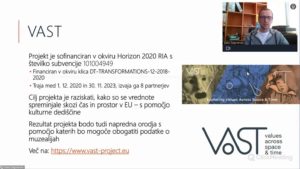
SEMANTIKA, as VAST partner and in the context of the project’s commercialisation and exploitation strategy, examines ways to integrate some of the advanced project outcomes, like the annotation tool into its software. At this stage, SEMANTIKA presents the work conducted within the project to future users and determines whether these tools and actions could provide possible added value to the VAST project.
VAST International Theatre Conference successfully organised by NKUA
The International Theatre Conference Values of Ancient Greek Theatre Across Space & Time: Cultural Heritage and Memory was held virtually on 6-7 November 2021. The highly successful event was organised by the VAST partner, National and Kapodistrian University of Athens (NKUA) and attracted more than 350 registrants.
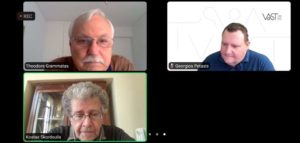
Emeritus Prof Theodoros Grammatas, NKUA along with Dr Georgios Petasis, VAST Coordinator
and Prof Constantine Skordoulis, NKUA welcomed participants to the Conference.
The two-day event brought together academics, young researchers and postgraduate students, who had the opportunity to attend, among other presentations in the field of Values in Ancient Greek Theatre, two important keynote talks, held by the invited speakers Prof Heinz-Uwe Haus and Emeritus Prof Michael Walton.
Presentations from the VAST Conference
Invited keynote speakers
UMIL participated in the Cultural Heritage Game Jam
VAST partner Martin Ruskov, postdoctoral researcher in the University of Milan, participated in the Cultural Heritage Game Jam, which was held online between 5 and 21 November 2021. The aim was to create and submit a game on cultural heritage themes such as the importance of protecting and preserving cultural heritage, the diverse cultural art, artifacts, traditions, and places, the cultural heritage looting, theft, trafficking, destruction and the effects of climate change on cultural heritage.
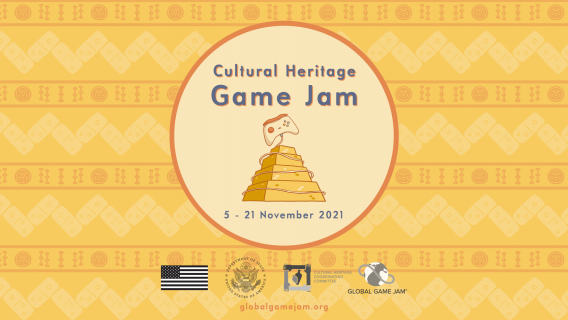
The team has worked on ideas relevant to the VAST pilots that study Values in Scientific Revolution Texts and in European Folktales, i.e. a city building game where players build their vision of the island of Bensalem and a digital Lapse-like card game based on a Brothers Grimm fairytale, creating a prototype that you can try out here.
All games created for the Cultural Heritage Game Jam will be promoted on the GGJ’s itch.io page. This game jam is organised by the Global Game Jam in partnership with the Cultural Antiquities Task Force (CATF), part of the U.S. Department of State’s Cultural Heritage Coordinating Committee.
VAST project in Greek science magazine PRISMA
VAST has been featured in the Greek science magazine Prisma, of Greek newspaper Avgi.gr.
Prisma Magazine highlights the VAST project through its featured article under the title VAST: Exploring the European values across space and time. The article was published on 17 July 2021 and elaborates on the vision of the project and the study of the past and the present of the values.
Meet the Partner – NCSR Demokritos
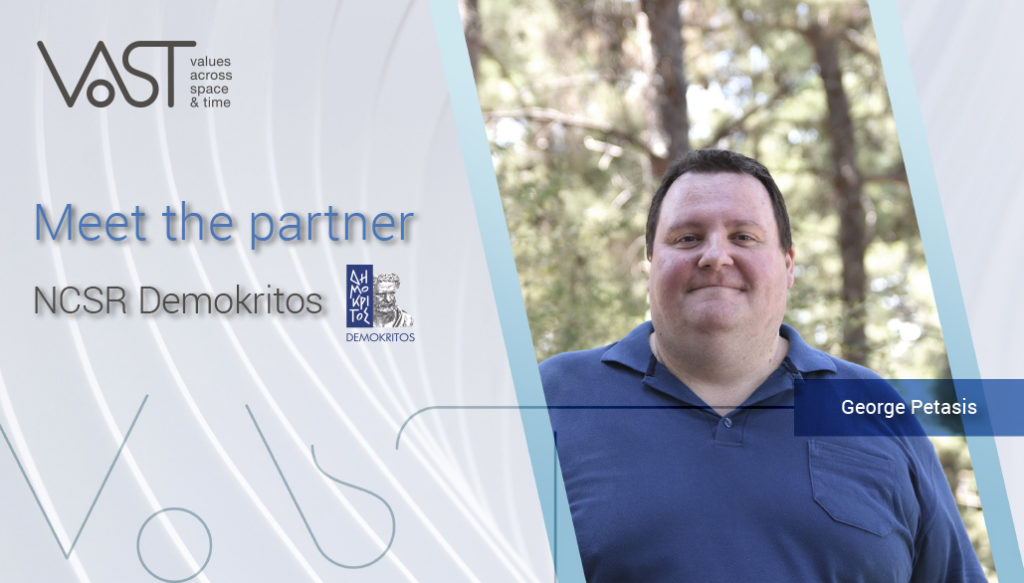
The National Centre for Scientific Research Demokritos (NCSR Demokritos) is the largest multidisciplinary research center in Greece, with critical mass in expertise and infrastructure in the fields of Informatics and Telecommunications, Nanotechnology, Energy & Environment, Biosciences, Particle and Nuclear Science.
NCSR Demokritos has more than 1,200 staff, 180+ Researchers and 500+ research staff with many years of experience and numerous projects under its belt which are funded by the Greek State, the European Union, International organisations and the Industry. NCSR Demokritos conducts world-class basic and applied research, for advancing scientific knowledge and promoting technological development in selected areas of national socio-economic interest. The Center also plays a pivotal role in graduate education and professional training and its unique infrastructure is employed for high technology services to the Industry and the Society.
NCSR Demokritos is the coordinator of the VAST project, participating with SKEL The AI Lab of the Institute of Informatics and Telecommunications. Dr. Georgios Petasis is the lead person responsible for the overall management of the project. NCSR Demokritos is also leading WP6 Maximise Impact: Communication, engagement, dissemination and exploitation as well as WP7 Manage: Coordination and management.
NCSR Demokritos also participates in the project with the House of Classical Greek Ideas, a model exhibition on classical Greek ideas and ancient Greek philosophy. This exhibition on moral values will be a prominent physical venue where VAST’s activities can be put into practice and evaluated, engaging a wide audience of visitors, from students and youngsters, to tourists. As the coordinator of the project, NCSR Demokritos will provide the potential to organise VAST-specific events and exhibits, and use VAST results as a means to enhance its existing exhibitions. In addition, VAST will have full access to the repositories, datasets, digital assets and virtual exhibits of the House of Classical Greek Ideas, including a registry of values, an ontology of values concerning the axial age of the Greek-Roman world, organised as a graph, and connected with positions and opinions from many ancient Greek philosophers. This registry of values will be used as a basis for grounding VAST’s value-based semantic relations.
Meet the Partner – NOVA University of Lisbon
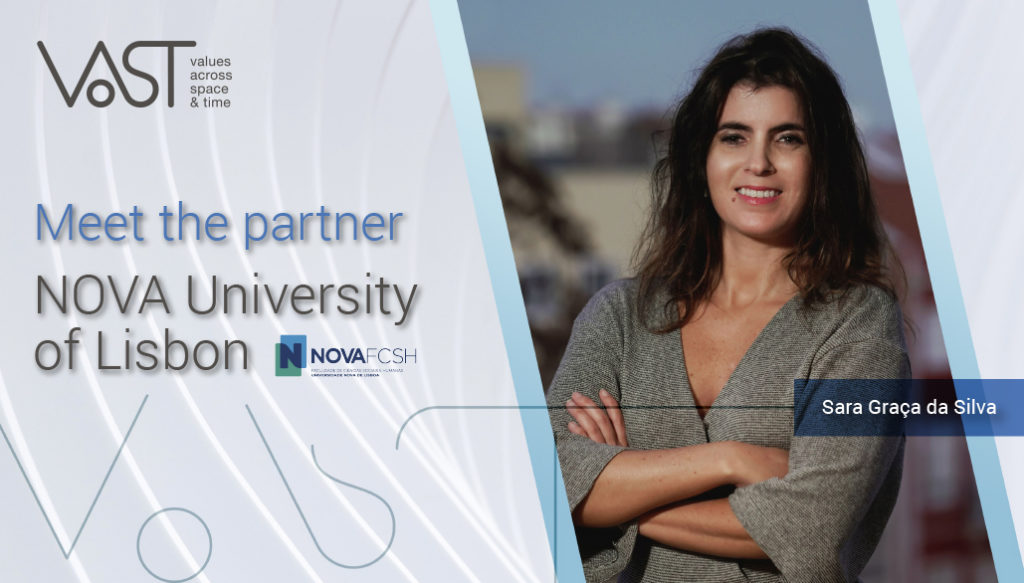
NOVA University of Lisbon (NOVA) is one of the two public Universities located in Lisbon and it is the best ranked Portuguese university in QS Ranking 50 under 50 (41th). The university includes, besides the Rectorat, 1 School of Public Health, 3 Institutes and 5 Faculties, including NOVA School of Social Sciences and Humanities (NOVA FCSH) that participates in VAST project.
NOVA FCSH is the largest Portuguese Higher Education and Research institution in the fields of Social Sciences and Humanities, covering such areas as Communication and Language Sciences, Artistic and Literary Studies, Philosophy, History and Archaeology, Anthropology, Demography, Geography and Sociology, Political Studies and International Relations, and intersections between these disciplines.
NOVA FCSH develops cutting-edge research in different scientific areas in its 16 R&D Units, 14 of them are financed by the Portuguese Foundation for Science and Technology (FCT – Fundação para a Ciência e a Tecnologia). The ever-growing academic community at the NOVA FCSH counts over 2.000 national and international researchers integrated and/or associated to a Research Unit, as well as many other co-researchers, students and research grant holders. The Institute for the Study of Literature and Tradition (IELT) is the research unit that is active in the VAST project and is a multi-faceted centre that welcomes scholars from various fields, including literature, art, music, sociology, anthropology, medicine, biology, history of science, etc. Members share interests in the potential of literature for multidisciplinary reflections on cultural identities in constant re-evaluation.
More specifically, in the VAST project, NOVA FCSH participates as a partner with Dr Sara Graça da Silva as the lead person. NOVA’s team leads WP2: RESEARCH: Researching values across time and space, and especially Pilot 3: Values in European Folktales. This pilot seeks to analyse emotional and moral expressions conveyed in a number of selected tales by the Grimms brothers. Employing a cross-cultural perspective involving the participating countries in the project, it will look at how these values and moral judgments have been both received and adapted.
Folktales’ enduring appeal is intrinsically linked to the power of storytelling from time immemorial. Their motifs are timeless and fairly universal, comprising dichotomies such as good/evil, right/wrong, punishment/reward, moral/immoral etc. Narratives have many roles in our lives, reflecting broader cultural identities across time and place. Considering the heredity of memory, tales are a privileged means for the transmission of shared, core values that drive our behaviour.
Besides the theoretical research and analysis of textual evidence of the works regarding the values they convey from a multi-disciplinary perspective, there will also be a strong experimental approach to NOVA’s investigation. Through the use of biophysical methods (biosensors and eye tracking), we will explore emotional and moral reactions from participants to both familiar and unfamiliar stories using a variety of stimuli, including textual excerpts (both Grimms’ and adapted versions), illustrations and videos from films/plays.
Despite being often disregarded as simply fictional and even as a lesser form of literature, the extraordinary variability of tales makes them ideal case studies for cross-cultural comparisons on social values and dynamics, including cooperation, competition, or decision making. Albeit fictitious, folktales are important simulations of reality. The impact of such discernment goes beyond academia and can contribute to a greater sense of societal wellbeing.
VAST organises International Theatre Conference | Call for papers
CALL FOR PAPERS
INTERNATIONAL THEATRE CONFERENCE
Values of Ancient Greek Theatre Across Space & Time: Cultural Heritage and Memory
6 – 7 November 2021
Online
We live in a time marked by physical distancing, isolation, and quarantines. A time that makes us more aware of the multiple boundaries that surround us: geographical restrictions and borders, boundaries in human relations but also in the Arts.
With the above in mind, the National and Kapodistrian University of Athens (NKUA) will be hosting the International Conference named Values of Ancient Greek Theatre Across Space & Time: Cultural Heritage and Memory. The conference will focus on the lasting and, at the same time, ever changing values of ancient Greek theatre which are also research in the context of the three-year long H2020 European programme VAST (Values Across Space and Time) which kickstarted in December 2020.
The conference aims to create space for the presentation of scientific work in the field of Values. More specifically, organisers are interested to explore how these “old” values concerning Democracy, Human Rights, Freedom, Peace, Rational Thinking, Hegemonic Discourse and Equality, amongst others, travel through time and space, how they are recalled or forgotten, how they are engaged with our variously enclosed existence, by what method they are performed, and how they evolve and/or transfigure in the context of post-modern and post-humanist world boundaries.
Academics, young researchers, postgraduate students, and artists are invited to propose and present topics that fall under the aforementioned areas of interest and thinking. Those interested in participating might consider, but are not limited to, the following themes:
- Ancient Greek world as global cultural heritage
- Ancient Greek theatre: moving across place, space and time
- The problematics and challenges of adaptation: a matter of choice or a necessity?
- Re-reading ancient Greek theatre’s values: about limits and possibilities
- Educational values of ancient drama in the post-postmodern and post-humanist era
- Classical studies and theatre in education: what is new in the old?
- Digital humanities, digital drama/theatre and the study of ancient Greek culture: New paradigms of accessibility
- Cultural consciousness and theatre memory
- Tragic violence: an all time classic
- Ancient drama and contemporary views about gender, race, family, body, sexuality, diversity, nature, ecology
- Ancient drama and popular culture
- Ancient drama vis a vis the contemporary social diversity/alterity/multiplicity
- The classics and the new generation
Important dates
30 May 2021: Submission of abstracts (approx.150 words) and a short CV (approx. 50 words)
30 October 2021: Final paper submission
6 – 7 November 2021: Conference
How to apply
Submission of abstracts (about 150 words) and a short biographical note (of no more than 50 words) should be submitted to the organising committee (see emails below) by 30 May 2021.
Place: Online
Presentation time: 15 minutes (including use of videos, projections, Q&A etc)
Language(s): Greek, English
Participants: University teachers, PhD scholars, PhD Candidates, postgraduate students, researchers, theatre critics, artists
Fee: Free of charge
NOTE 1: The conference proceedings will be published in the form of an e-book.
NOTE 2: All abstracts and final papers should be sent to the members of the Organising Committee.
NOTE 3: Due to the pandemic restrictions, the conference will be held online.
Organising Committee
- Theodoros Grammatas, Emeritus Professor, National and Kapodistrian University of Athens (tgramma@primedu.uoa.gr)
- Savas Patsalidis, Emeritus Professor, Aristotle University of Thessaloniki (spats@enl.auth.gr)
- Aikaterini (Kaiti) Diamantakou, Associate Professor, National and Kapodistrian University of Athens (diamcat@theatre.uoa.gr)
- Mary Dimaki Zora, Assistant Professor, National and Kapodistrian University of Athens (mzora@primedu.uoa.gr)
- Takis Tzamarias, Special Scientific Stuff, National and Kapodistrian University of Athens – director (ptzamar@primedu.uoa.gr)
Partner SEMANTIKA presented VAST in two events in Slovenia
VAST partner Nina Zagoranski, SEMANTIKA presented our project in Slovenia on two separate occasions in April.
On April, 13 VAST was presented during the event Microsoft Croatia: Microsoft CEE Industry Week during the Cultural Industry Innovation Panel.
The second one was on April 14, at the Technology Park Ljubljana, Slovenia: The Future of Digitalization of Cultural Heritage.
